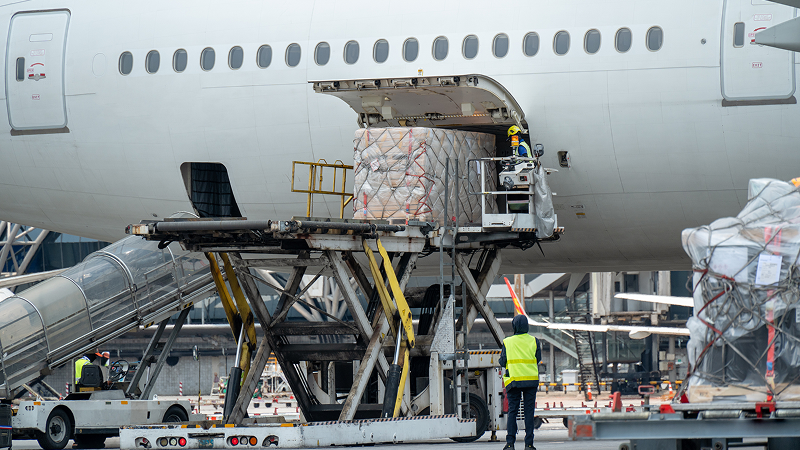For years, the de minimis threshold quietly enabled the frictionless flow of ecommerce into the US. It allowed low-value goods to clear without duties or formal customs procedures – powering growth for online sellers, platforms, and the logistics providers that move their freight.
That era is over. Beginning August 29, US Customs and Border Protection (CBP) will start enforcing new tariffs and formal entry requirements on low-value shipments from all countries. It’s a change that affects not just operational teams, but executive strategy – because the real impact goes far beyond the customs desk.
A structural shift, not a process tweak
This isn't just about new data fields or a few extra declarations. It's a fundamental recalibration of how cross-border ecommerce moves through the global supply chain.
Here’s what’s changing:
- Complexity becomes the baseline.
Low-value shipments now require formal classification, additional data, and tighter controls. Multiply that across millions of parcels, and the cost of doing nothing adds up fast – especially for providers still relying on manual or semi-automated processes. - Margins are under real pressure.
Duties are only part of the story. The risk is operational drag: more people, more processing, more exception management. That cost compounds quickly, especially in low-margin, high-volume ecommerce flows. - Your customers are rethinking their models.
Retailers, marketplaces, and manufacturers are already adjusting – revisiting sourcing strategies, shifting fulfillment closer to end markets, and asking more from their logistics partners. If you’re not offering scale, speed, and compliance confidence, someone else will.
The real risk? Falling behind in a market that’s moving fast
As a senior leader, the question isn’t whether this rule change is material – it’s whether your business is ready to respond at scale.
- Can your systems flex to accommodate both duty-free and dutiable flows without slowing down operations?
- Can you consolidate customs, forwarding, warehousing and ecommerce workflows into a single, efficient platform?
- Can you give your customers a seamless, digital-first experience – across every step of the journey?
If not, you're not just exposed to inefficiency. You're vulnerable to losing ground and customers.
CargoWise: Built for the scale and complexity of global logistics
This is where CargoWise International Ecommerce comes in. To help logistics businesses respond to the changing US import landscape, we’ve introduced a set of powerful enhancements specifically designed for high-volume ecommerce declarations. These updates enable you to manage both duty-free and dutiable low-value shipments in a single, streamlined workflow.
Here’s how it works:
- Select the right entry type for every shipment
CargoWise enables users to select the correct entry type based on shipment value, origin, and applicable regulations. From August 29, with Entry Type 86 no longer available, shipments under USD $800 will now require either Entry Type 01 or Entry Type 11, depending on duty status and CBP requirements. CargoWise supports both and ensures that the correct process is followed for each declaration, based on the latest regulatory guidance. - Enjoy built-in validations to reduce risk
The platform guides your teams to complete the right fields – such as Importer of Record, Buyer, and Manufacturer – and flags incorrect or non-compliant submissions before they reach CBP. - Power high-volume submissions, handled with ease
CargoWise supports both individual stand-alone declarations and the consolidation of high volumes of ecommerce orders into a single declaration. When hundreds or thousands of consignments share the same MAWB or MBOL, they can be grouped into a single consolidated informal (Type 11) or formal (Type 01) declaration. Alternatively, individual stand-alone declarations can be processed per ecommerce order or consignment. This flexibility helps reduce manual processing, maintain compliance, and manage volume efficiently at scale. - Access simplified billing and duty collection
Consolidated 'Summaries Group' related shipments into a single filing and automatically link entry numbers to invoice headers. The platform manages duty calculation, billing, and collection across all related declarations – so your teams aren’t bogged down by fragmentation or manual reconciliation.
Don’t let this moment pass you by
This enforcement change is a signal – of where trade policy is heading, and of what the future demands of logistics. The question isn’t whether your business will adapt. It’s how quickly – and how well. With CargoWise International Ecommerce, you don’t just stay compliant. You stay ahead, with the digital foundation to compete in an increasingly regulated, fast-moving global market.
Now’s the time to act
Let’s talk about how our powerful international ecommerce solution can help your teams scale smarter, reduce risk, and deliver better outcomes – for your business and your customers.
All news
Latest news
Sign up to our CargoWise Newsletter
Subscribe for the latest updates on new CargoWise functionality, success stories from our customers, and insights from our global team.
